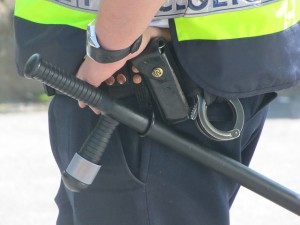How to Stay Safe and Smart During an Arrest
 Getting arrested is a traumatic experience where emotions are high. And just like in other times of crises, it is vital to keep your cool and have a few simple rules to keep in mind. By knowing what to do when getting arrested and following only a few easy rules, you can make the experience much less harmful to your person and your future. Also, the more cooperative you are, the faster the arrest ends.
Getting arrested is a traumatic experience where emotions are high. And just like in other times of crises, it is vital to keep your cool and have a few simple rules to keep in mind. By knowing what to do when getting arrested and following only a few easy rules, you can make the experience much less harmful to your person and your future. Also, the more cooperative you are, the faster the arrest ends.
It is very important to remember 4 basic rules when it comes to getting arrested:
- Do Not Resist: If a police officer begins to charge you or pulls out their handcuffs, any possible other movements besides slowly putting your hands behind your head, in the air, or flattening yourself on the ground as instructed can be construed as acting aggressively. Not only can acts of aggression produce their own charges, but it can cause police officers to react defensively which could result in your getting hurt.
Just remember, if you are being arrested, only move your hands when you are instructed to and be still otherwise. - Stay Quiet: It is your legal right to remain silent – which will be told to you upon Mirandizing. Use it. The less you say, the less chance of self-recrimination you have. More often than not, you are also fairly upset over being arrested. Nothing you can say in that moment, in a fit of well-deserved emotion, will help the situation. In fact, mouthing off to an officer can often hurt your case much more than you know. The arresting officer can, and sometimes has to, attend your arraignment and their testimony may influence the judge’s stance on your bail. This does not mean being unhelpful. If an officer asks you a direct question concerning any of your possessions or anything on your person, BE HONEST. This is for the safety of both the office and yourself. When it comes to dangerous weapons or substances, do not lie and do not let and put the officer at risk.
- Be Respectful: This is a simple lesson we all learn in grade school but is entirely too hard to remember when it comes to emotional, traumatic crises like being arrested. However, the more respectful you are to the officers you come into contact with, the more likely they are to process you quickly. A fast process – or booking – means you can be bailed out faster.
- Contact a bail bond agent and lawyer as soon as possible. The bail agents at Double “O” Bonding are professionals you can count on. We know the law inside and out, we know the detention facilities you may be taken to, and we know how to act fast for your sake. The sooner we know you are in trouble, the sooner we can help you out of it.
